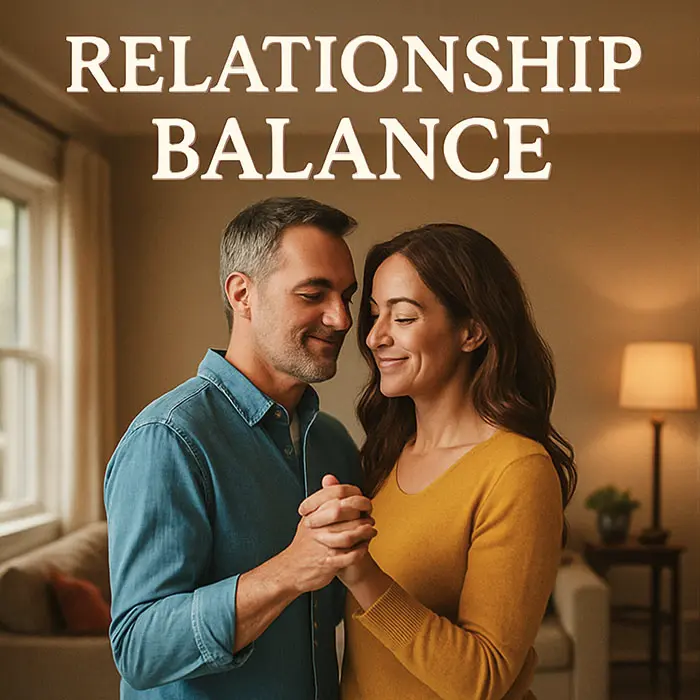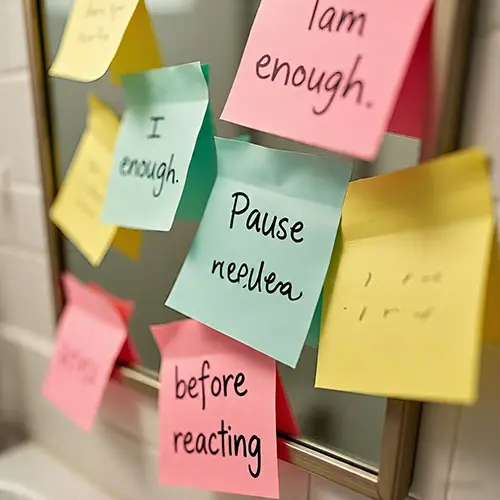Introduction
I used to think love meant giving everything to my partner my time, my energy, my whole dang self. I’d twist myself into whatever they needed: the chill girlfriend the nurturing one the always-there-no-matter-what one. But after a while, I’d be wiped out, kinda resentful, and feeling like I was fading away. It’s embarassing how long it took me to figure out that wasn’t love it was self-abandonment with a romantic filter 😔

One day, I was sitting in a coffee shop, staring at my latte, feeling like I didn’t even know who I was anymore.
I’d stopped going to my book club, ditched my morning runs, and was basically living for my partner’s schedule.
That’s when it hit me: I needed to take care of me to be any good for us. That’s what self-care in relationships is all about not losing yourself while you’re trying to love someone else.
In this article, we’re gonna dig into what selfcare really looks like when you’re in a relationship, why it’s a total game-changer, and how you can start doing it without feeling guilty. No fluff just real talk from someone who’s been there, plus some solid tips backed by experts. Ready to stop disappearing in your relationships?
What Is Self-Care in Relationships?
Self-care in relationships is about keeping your own well-being in check physically, emotionally, mentally, and even spiritually while being part of a couple. It’s not about ditching your partner or being selfish. It’s about making sure you’re not running on empty so you can show up as your best self for both you and them.
According to MyWellnessHub, self-care includes “practices and activities to reduce stress and maintain and enhance short- and long-term health and well-being.” In a relationship, that means stuff like:
- Saying what you need without feeling like you’re asking for too much.
- Holding space for your own feelings, even when your partner’s emotions are loud.
- Keeping your identity your hobbies, friends, and passions alive and kicking.
Think of it like this: a relationship is like a dance. If you’re only focused on your partner’s moves, you’ll trip over your own feet. Self-care helps you find your rhythm so you both can shine. It’s not just bubble baths after a fight or ghosting your partner to “protect your energy.” It’s about staying whole while loving someone else

Why Is It So Important?
You might be thinking, “If I’m happy in my relationship, why do I need self-care?” Well, even the best relationships can drain you if you’re not looking out for yourself. Here’s why it matters:
- Prevents Burnout: If you’re always putting your partner first, you’ll eventually run out of steam. As Couples Counseling Chicago puts it, “You can’t pour from an empty cup.” Self-care fills your cup so you’ve got something to give.
- Keeps You You: Relationships can make you feel like you’re merging into one person, but you’re still an individual with your own dreams and quirks. Self-care helps you hold onto that.
- Reduces Resentment: When you neglect your needs, you might start feeling bitter, even if your partner’s not doing anything wrong. Taking care of yourself keeps those feelings in check.
- Boosts Relationship Health: When you’re taking care of yourself, you’re more patient, present, and loving. It’s a win-win.
- Supports Mental Health: Studies show self-care reduces stress and improves mental well-being, which makes you a better partner. According to UCLA Helth, self-care practices like exercise can cut poor mental health days by over 40%.
I remember this one time in college, I was dating someone who was super intense. I’d skip my yoga classes to hang out with them, and I stopped calling my friends because I was always “busy” with my partner. By the end, I was snappy, tired, and honestly kinda miserable. When I started carving out time for myself like going for a run or just reading a book alone I felt like I could breathe again. And guess what? Our relationship got better because I wasn’t a grumpy mess anymore. 😅
What I Learned the Hard Way (And Still Forget Sometimes)
I once dated someone who never asked how I was feeling. And I stayed. I stayed because “they were going through a lot” and I didn’t want to seem needy.
But here’s what I wish someone had told me:
📌 Self-care in a relationship isn’t selfish. It’s what keeps love from turning into sacrifice.
📌 You can’t connect deeply with someone if you’ve gone numb inside.
📌 If you’re always accommodating, you slowly disappear.
I wrote about emotional fatigue in another piece and yeah, people-pleasing plays a huge role. Especially when you’re always “fine” just to keep things calm.
Little Ways I Practice Relationship Self-Care (Without Being Dramatic)
– I take walks alone without texting first.
– I say “I need time to answer that” when a question feels too much.
– I let myself be quiet even when they want to talk.
– I journal *before* I vent.
– I check in with myself after hanging out Was that connection or performance?
These aren’t big. But they’re mine.
Love Doesn’t Mean Losing You
Relationships work better when we stay whole not when we twist ourselves to fit.
So next time you feel a little off after being with someone, ask: “Did I show up for myself, too?”
Because you deserve both connection and clarity.
Signs You’re Neglecting Self-Care
Not sure if you’re dropping the ball on self-care? Here are some signs you might be neglecting yourself in your relationship:
- You’re Always Tired: You feel drained, even if you’re sleeping okay.
- You’ve Lost Your Spark: You’ve stopped doing things you love, like painting or hiking.
- You Feel Invisible: You’re so focused on your partner that you don’t even know what you want anymore.
- You’re Resentful: Little things your partner does bug you, and you don’t know why.
- You’re Always Saying Yes: You agree to stuff you don’t want to do just to keep the peace.
I hit all these signs in one of my past relationships. I’d say yes to every plan my partner made, even if I was exhausted. I stopped going to my favorite spin class because it didn’t fit their schedule. And I’d get so annoyed over tiny things, like them leaving dishes in the sink. That’s when I knew I needed to take a step back and focus on me

Honest Q&A (From One Human to Another)
- Q: Isn’t self-care in a relationship kind of selfish?
A: Only if you think having feelings is selfish. (Spoiler: it’s not.)
- Q: What if they think I’m being distant?
A: You can love them and still need space. Explain but don’t shrink.
- Q: How do I know I’m losing myself?
A: If you feel resentful, invisible, or like you’re ‘performing’ all the time that’s a sign.
- Q: Can I still be generous and have boundaries?
A: Absolutely. Generosity without boundaries turns into resentment.
- Q: What if I forget and go back to old habits?
A: Welcome to being human. Just notice and come back to yourself.

So… What Is Self-Care in a Relationship, Really?
You know what’s funny? For the longest time, I thought self-care was just about face masks and saying “no” more often. But then I got into this relationship one that felt… different. Softer, maybe. More alive. And weirdly, that’s when everything fell apart.
“What Even Is Self-Care?”
Let’s pause for a sec. Before throwing around words like self-care, self-love, mindfulness… let’s ask the most basic question:
What does self-care even mean?
If you ask 10 people, you’ll probably get 10 totally different answers. Some might say it’s journaling. Others, going to the gym. Someone else might swear by a digital detox. And they’re all kinda right.
But for me? It’s this moment.
This breath.
The decision not to answer a message when I feel triggered.
The permission to rest without guilt.
The courage to speak my own truth, even if my partner doesn’t like it.
So yeah, maybe self-care is simply remembering… you exist.
How to Practice Self-Care in Relationships
Alright, let’s get to the good stuff how do you actually do self-care in a relationship? Here are some practical tips, mixed with stuff I’ve learned the hard way and backed by experts:
1. Communicate Your Needs
Don’t be afraid to tell your partner what you need. Want a night to yourself? Say it. Need them to listen without fixing your problems? Tell them. It’s not about being demanding it’s about being honest. Thriveworks says clear communication is key to balancing your needs with your partner’s.
I used to think asking for alone time would hurt my partner’s feelings. But when I finally said, “Hey, I need a night to just chill and read,” they were totally cool with it. Turns out, they needed space too!
2. Set Boundaries
Boundaries aren’t walls they’re guidelines that keep you safe and sane. Maybe you need to limit how much you talk about work drama or say no to plans that don’t vibe with you. Positive Psychology says boundaries are a core part of self-care because they protect your energy.
For example, I had a partner who’d call me every night to vent about their day. It was exhausting. So I said, “I love supporting you, but can we keep vent sessions to 20 minutes?” It made a huge difference.
3. Make Time for Yourself
Schedule “me time” like it’s a date with yourself. Could be an hour to watch your favorite show, go for a walk, or just sit in silence. GoodTherapy says “me time” helps you reconnect with what’s important to you.
I started blocking off Sunday mornings for myself no plans, no partner, just me and my journal. It’s like a reset button for my soul.
4. Practice Emotional Self-Care
Your emotions need attention too. Try journaling to process your feelings or talking to a therapist if things feel heavy. Choosing Therapy suggests nurturing your emotions to reduce stress and boost your mood.
When I was feeling overwhelmed in a relationship, I started writing down my thoughts every night. It helped me figure out what was mine and what was just relationship noise.
5. Keep Up with Friends and Family
Don’t let your relationship become your whole world. Stay connected with friends and family who lift you up. SD Relationship Place says surrounding yourself with supportive people is a big part of self-care.
I used to ditch my friends to spend every weekend with my partner. When I started making time for my besties again, I felt so much more like myself. Plus, they give the best advice when I’m overthinking stuff. 😄
6. Take Care of Your Body
Physical health is a big part of self-care. Eat well, move your body, get enough sleep. It sounds basic, but it’s huge. UCLA Health says exercise alone can cut mental health struggles by 40%.
I started going for runs again after a breakup, and it wasn’t just about fitness it cleared my head and made me feel strong again.
7. Do Stuff You Love
Don’t give up your hobbies or passions. Whether it’s painting, gaming, or gardening, make time for what lights you up. Marriage.com says hobbies keep you grounded and happy.
For me, it’s reading sci-fi novels. I used to feel guilty taking time to read when I could be with my partner, but now I see it as fuel for my happiness.
8. Check In with Yourself
Take a moment each day to ask:
- “How am I doing?”
- Are you stressed?
- Happy?
- Overwhelmed?
- Naming your feelings helps you figure out what you need.
It’s like a mini therapy session with yourself. I do this every morning while brushing my teeth.
Just a quick, “Yo, how’s my heart doing today?” It’s weirdly helpful

Self-Care ≠ Selfish. But It’s Not Always Cute Either.
Let’s be real for a sec.
Sometimes self-care looks ugly. Like crying in the shower because you finally admitted the relationship isn’t working. Or putting your phone on airplane mode so you don’t spiral into comparison.
It’s not always soft candles and herbal tea.
And here’s the thing most people miss:
Self-care isn’t always about adding it’s often about subtracting.
- Subtracting the guilt.
- Subtracting the “shoulds.”
- Subtracting the pressure to be the perfect partner.
Common Misconceptions About Self-Care
There’s a lot of confusion about what self-care in relationships means. Let’s clear up some myths:
- It’s Selfish: Nope. Taking care of yourself makes you a better partner, not a worse one. It’s like charging your phone so it can keep working.
- It Means Ignoring Your Partner: Self-care isn’t about neglecting your relationship. It’s about balancing your needs with theirs.
- You Only Need It When Things Are Bad: Self-care is a daily practice, not just a fix for tough times. It’s like brushing your teeth you do it to stay healthy, not just when you have a cavity.
- It’s All About Spa Days: Self-care isn’t just pampering. It’s about practical stuff like setting boundaries or getting enough sleep.
I used to think self-care was just for when I was stressed out. But once I started doing it regularly, I realized it’s what keeps me from getting to that stressed-out point in the first place.
Suggestions
Is Self-Care Feminine?
It’s often marketed that way, right? Pink journals, soft lotion, spa playlists. But self-care has zero gender.
In fact, some of the strongest self-care I’ve witnessed came from men who finally said:
- “I’m not okay.”
- “I need time.”
- “I can’t fix this right now.”
That’s not weak. That’s wildly brave.
Self-Care for the LGBTQ+ Community
For folks in the LGBTQ+ community, self-care in relationships can be extra important. Dealing with societal pressures, family rejection, or identity struggles can add a layer of stress that makes self-care non-negotiable. According to Them.us, self-care for queer folks often involves finding joy, setting boundaries, and connecting with supportive communities.
For example, a friend of mine who’s non-binary said they struggled with feeling like they had to “perform” in their relationship to avoid judgment. They started practicing self-care by joining an LGBTQ+ support group, which gave them a safe space to be themselves. It helped them bring more confidence to their relationship too. If you’re in the LGBTQ+ community, consider seeking out affirming spaces or therapists who get your experience it can make a huge difference

“Why Do I Forget Myself in Relationships?”
This one hit me hard.
I remember looking in the mirror one morning pale, tired, my anxiety humming under my skin and thinking:
“Where the hell did I go?”
Turns out, I’d been bending. Over-accommodating. Trying so hard to be “easy to love” that I’d forgotten what I even liked.
And I know I’m not alone.
Here’s what tends to happen:
- You meet someone and feel lit up.
- You want them to like you.
- You start adjusting. Small stuff at first.
- Before you know it… your favorite music, rituals, foods, boundaries they’re all blurred.
It’s sneaky. It’s gradual.
But it’s real.
The Science Behind It
Self-care isn’t just feel-good stuff it’s backed by science. Here’s what the research says:
- Mental Health: Self-care practices like exercise or mindfulness can reduce poor mental health days by over 40% (UCLA Health).
- Physical Health: Stress from neglecting self-care can increase risks of heart disease by 67% and cancer by 50% (Bradley University).
- Relationship Health: Couples who practice self-care report higher satisfaction and better communication (Journal of Marital and Family Therapy).
| Benefit | Impact | Source |
|---|---|---|
| Mental Health | 40% reduction in poor mental health days | UCLA Health |
| Heart Disease Risk | 67% increase with poor mental health | Bradley University |
| Relationship Satisfaction | Higher with self-care practices | Journal of Marital and Family Therapy |
This stuff is real. Taking care of yourself doesn’t just help you it makes your relationship stronger too.
So… Is Self-Care an Act of Love?
Absolutely.
Not just for your partner but for you.
Think about it:
- When you’re regulated, you respond instead of react.
- When you rest, you’re present not resentful.
- When you’re honest, your relationship becomes safe not confusing.
Taking care of you is a gift to the relationship. It shows up as clarity, warmth, and stability.
It says:
“I love you enough to bring my whole self here. Not just the broken bits you’re used to saving.”
Self-Love vs. Self-Care: Are They Different?
Yup, but they hold hands. 👭
- Self-care is what you do.
- Self-love is what you believe.
Self-care might be saying “no.”
Self-love is knowing you’re still worthy after saying it.
Self-care is going to therapy.
Self-love is not shaming yourself for needing help.
You can do self-care without feeling self-love like forcing yourself to rest but hating your body while doing it.
But real healing? That’s when they sync up.
Five Real-Life Examples of Self-Care in Relationships
These aren’t the fluffy listicle tips. They’re the ones that felt like actual rescue boats for me when I was drowning in emotional confusion:
- Leaving the room (not the relationship) when things got too heated instead of fighting dirty.
- Blocking a text thread temporarily during an argument so I don’t spiral into overexplaining.
- Saying “I need time to process” insteadd of people-pleasing with fake forgiveness.
- Choosing to sleep early instead of talking things out past midnight when my brain’s mush.
- Booking solo time walks, journaling, therapy not just date nights.
These are boring. They’re not Instagrammable.
But damn, they’ve saved me more than any quote ever has.

Is Self-Care Egoistic?Short answer? No.
Long answer?
If your care harms, manipulates, or dismisses someone else’s needs… it’s not self-care.
It’s control.
True self-care is responsible. It acknowledges impact. It doesn’t ghost people in the name of “protecting my energy.”
It just… refuses to abandon you in the process.
The Mindful Way of Living: A Different Lens 🧘
Here’s the paradox:
The more mindful you are, the more self-caring you become.
And vice versa.
What Is Mindful Living?
It’s not some big Zen retreat. It’s being present with what is, without adding stories.
- Feeling tension in your body and breathing into it, not ignoring it.
- Noticing your tone before snapping.
- Asking, “Do I want to do this? Or do I feel obligated?”
Mindful living lets you catch those moments where you abandon yourself before the damage is done.
You can read more about mindful living here

Real Talk: It’s Okay If You’re Still Figuring This Out
Seriously. Self-care isn’t a one-size-fits-all journey.
Some days it looks like yoga. Some days it looks like eating pizza in bed and muting your grup chat.
What matters is this:
You don’t disappear.
You don’t shrink.
You don’t pretend you don’t have needs because you’re scared they’ll scare someone off.
Final Thought?
Your wholeness never makes you too much.
And any relationship that thrives on your half-ness?
That’s not love. That’s quiet self-abandonment with a cute filter
Conclusion
Self-care in relationships isn’t about choosing yourself over your partner it’s about choosing yourself and your partner. It’s about staying whole, so you can love fully without losing yourself. Whether it’s setting boundaries, making time for your hobbies, or just checking in with how you’re feeling, these small acts add up to a healthier you and a healthier relationship.
So, don’t wait until you’re burned out or resentful. Start today. Tell your partner you need a night to yourself. Go for that run you’ve been skipping. Call a friend and laugh until your sides hurt. You deserve to feel like you in your relationship. And trust me, when you take care of yourself, everyone wins 😊

Citations:
- MyWellnessHub : The Role of Self‑Care in Maintaining Healthy Relationships
- Couples Counseling Chicago : The Importance of Self‑Care in a Healthy Relationship
- Them.us : 11 Self‑Care Tips, According to Expert Queer Healers
- Positive Psychology : Setting Healthy Boundaries
- Thriveworks : 6 Relationship Self‑Care Tips
Related articles on this topic that I recommend you don’t miss:
- Why Knowing Yourself Is the First Step to Self-Care
- A Gentle Morning Routine That Doesn’t Feel Like a Chore
- What Is Emotional Self-Care and Why You Probably Need It
It’s taking care of your physical, emotional, and mental well-being while in a relationship, so you don’t lose yourself or burn out. Think setting boundaries, making time for hobbies, or just saying what you need.
Not at all! Taking care of yourself helps you show up as a better partner. It’s like charging your battery so you can keep going.
Balance is key. Communicate your needs, set boundaries, and make time for both yourself and your partner. It’s about both of you thriving.
Yup, it can. Taking care of yourself can reduce resentment and stress, making it easier to work through issues together.
Time needed: 5 minutes
How to Start Self-Care in Relationships
- Check In with Yourself
Ask, “How am I feeling?” daily to stay in touch with your needs
- Set One Boundary
Say no to one thing that feels draining this week.
- Schedule Me Time
Block off an hour for something you love, like reading or exercising
- Talk to Your Partner
Share one need you have, like needing a quiet night in
- Connect with Friends
Call or meet up with a friend to recharge your social battery
- Try Journaling
Write down your thoughts for 5 minutes to process emotions
- Seek Support if Needed
Talk to a therapist or counselor for extra guidance
✨ Last updated on 03.08.2025











Leave a Reply